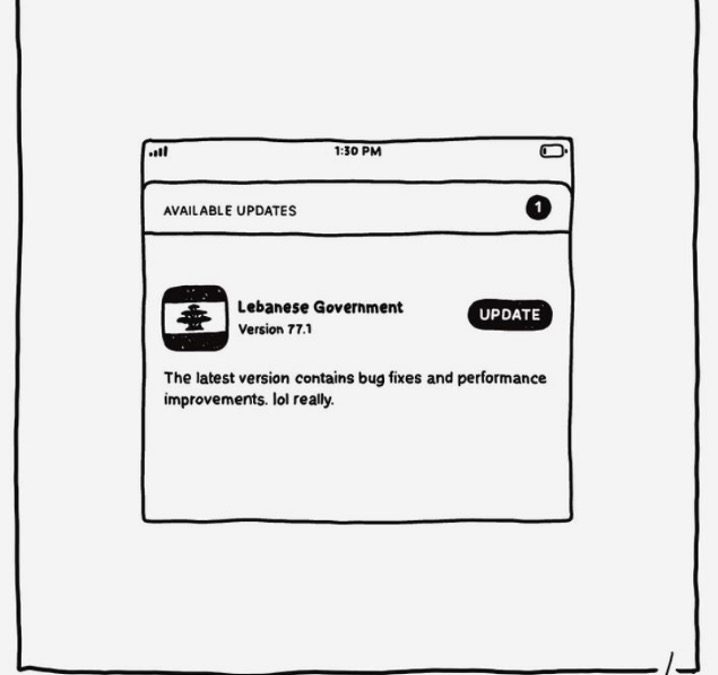By Lynn Ezzedinne | Staff Writer 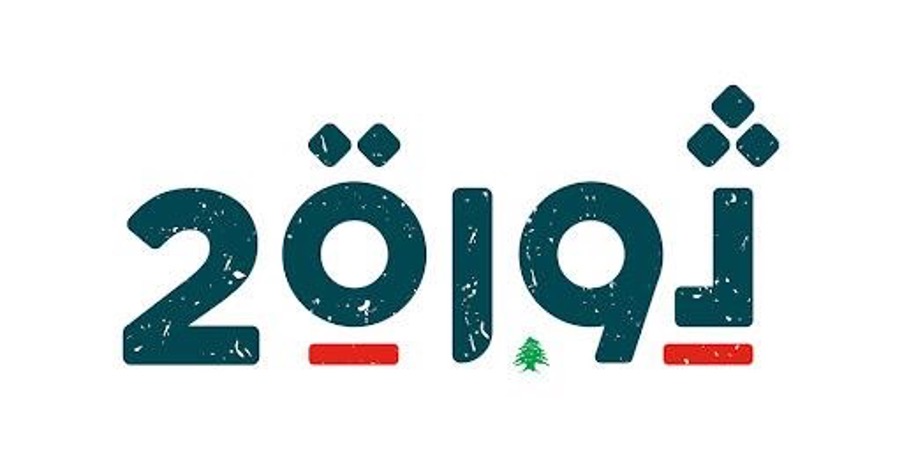
In a world where people are constantly bombarded by information, it becomes quite difficult to captivate their attention. However, cartoons; combining art, satire, and journalism have done so countless times and have managed to stand out even during madness and turmoil.
Cartoons have definitely proved to be powerful in the political domain – because, although they state the obvious – they always manage to make people look at established facts from a new perspective. Cartoonists, with a single picture, could target rivals while appealing to allies through humor. They are generally adept at evoking emotions that people remember, says Denise Reynolds, which in turn, emboldens citizens to take further action which was portrayed in Bernard Hage’s case. Bernard Hage, better known under the name of his Instagram handle @the.art.of.boo, is a Lebanese illustrator, writer, musician, and political cartoonist. He has published his work on a weekly basis in L’Orient Le Jour since 2018 which offered large exposure to his work. Then came the Lebanese revolution in 2019 which gave him even greater exposure. At that time, he wanted to play his role even further as an artist, more precisely a Lebanese political cartoonist during the revolution. He accomplished that, by creating the “thawra” icon, the visual identity of this revolution which creatively combined both the date -2019 and the word “thawra” (revolution) in one word.
The icon went viral in Lebanon; it was displayed on shirts, pins, bracelets, and abroad whereby in Italy, a rally driver had it on the back of his car, as well as in Paris and Marseille where the logo was featured on posters. As expected, the uprising really did inspire him and many other illustrators.
In an interview with The National UAE, Bernard said that living in Lebanon taught him to dig humor out of tragedy, something he refers to as “catharsis humor”. He believes to be the only coping mechanism left, saying “It’s the only thing we have. It’s the last wall standing between us and total chaos and total darkness” – well, actually, not total darkness since we’ve already experienced that earlier in October…
How does Bernard manage to criticize Lebanese politicians and still get away with it?
There’s no secret recipe, the answer is pretty clear: He combines humor and politics, because he believes in the power of political satire: “When you’re really laughing, you cannot be afraid”. He has found a way to convey his ideas while dodging coercive measures by the government; the politicians he draws are unidentifiable, making his political cartoons less provoking than text. His page has somehow become a platform that externalizes every Lebanese citizen’s thoughts of what Lebanon should be or could’ve been. A month into the revolution, he posted a cartoon thread on his Instagram page tackling the important changes that need to happen by 2030 for the sake of a better Lebanon.
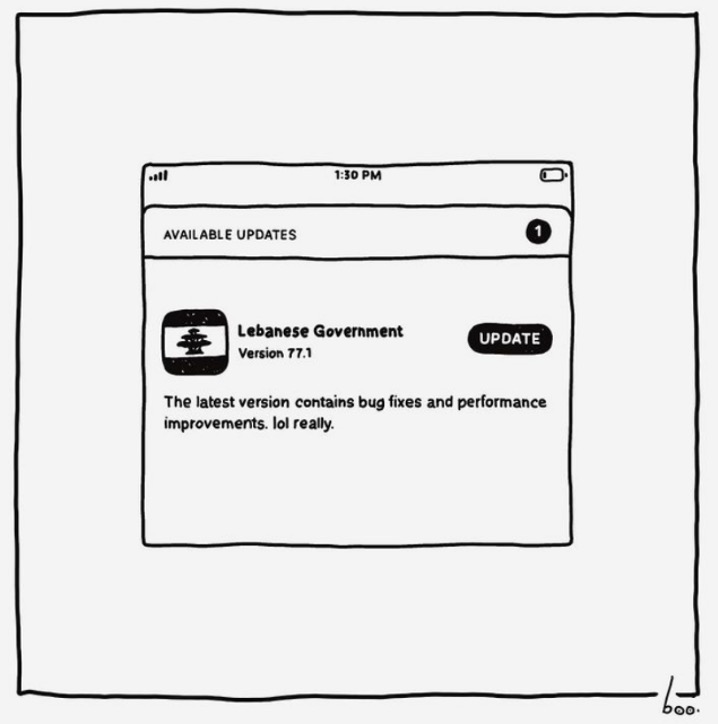
For instance, one is about the ability of the Lebanese mother to transmit her nationality to her child, where we see both parents with their son and a stranger saying: « He’s got his father’s eyes and his mother’s nationality ».
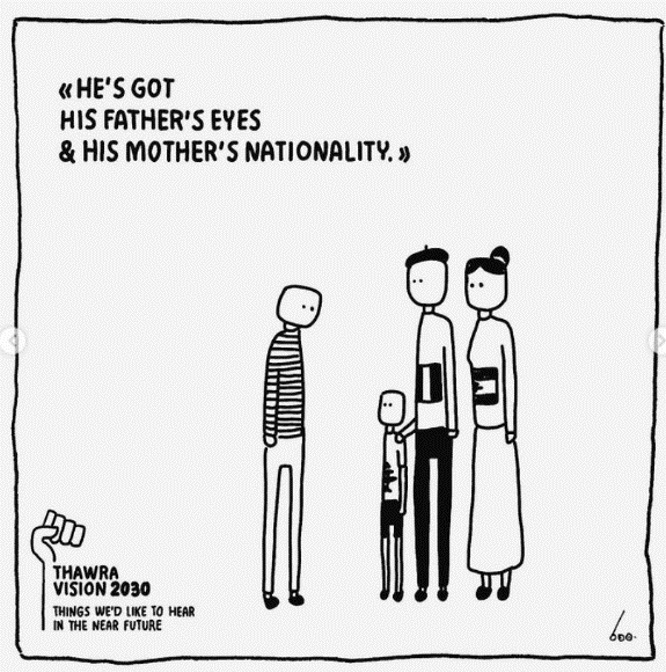
Another cartoon was posted in April 2020 showing two coins, one representing the « 500 LBP » coin, and another one next to it with the amount « 5,000 LBP » written on it. The whole idea was to depict the inevitable currency devaluation resulting from the worst economic crisis that the country has seen to date.
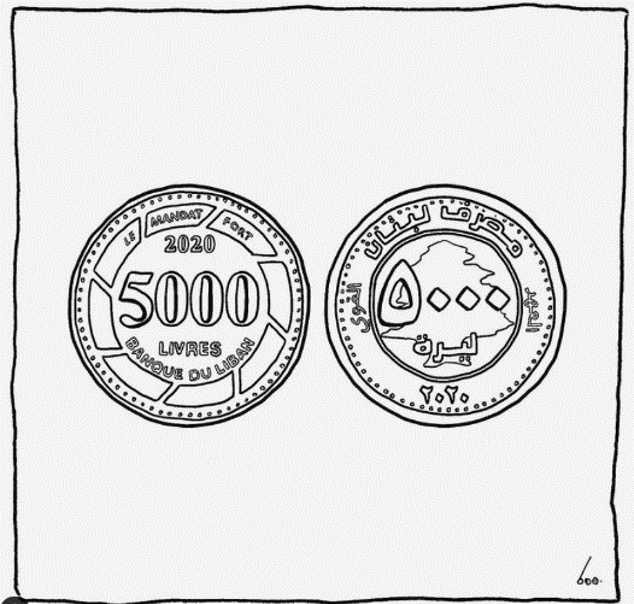
The accessibility of the posts urged reposts on social media; while, scrolling through his Instagram posts, one can notice that his most liked work are posts relating to the revolution, demonstrating the impact they’ve achieved in terms of impressions. His cartoons keep the conversation going where Lebanon’s Generation Z, who under usual circumstances would refrain from discussing political matters, tend to be very interactive on his page, because he was able to deliver his content in a brilliant manner that attracted users from all generations.
He represents a glimmer of hope to every Lebanese citizen. His art is a powerful tool to resist oppression, and artists like Bernard, are soldiers who fight for freedom of expression every single day. As George Osborne said, “It does all the things in one drawing that a newspaper does throughout all of its pages.”

